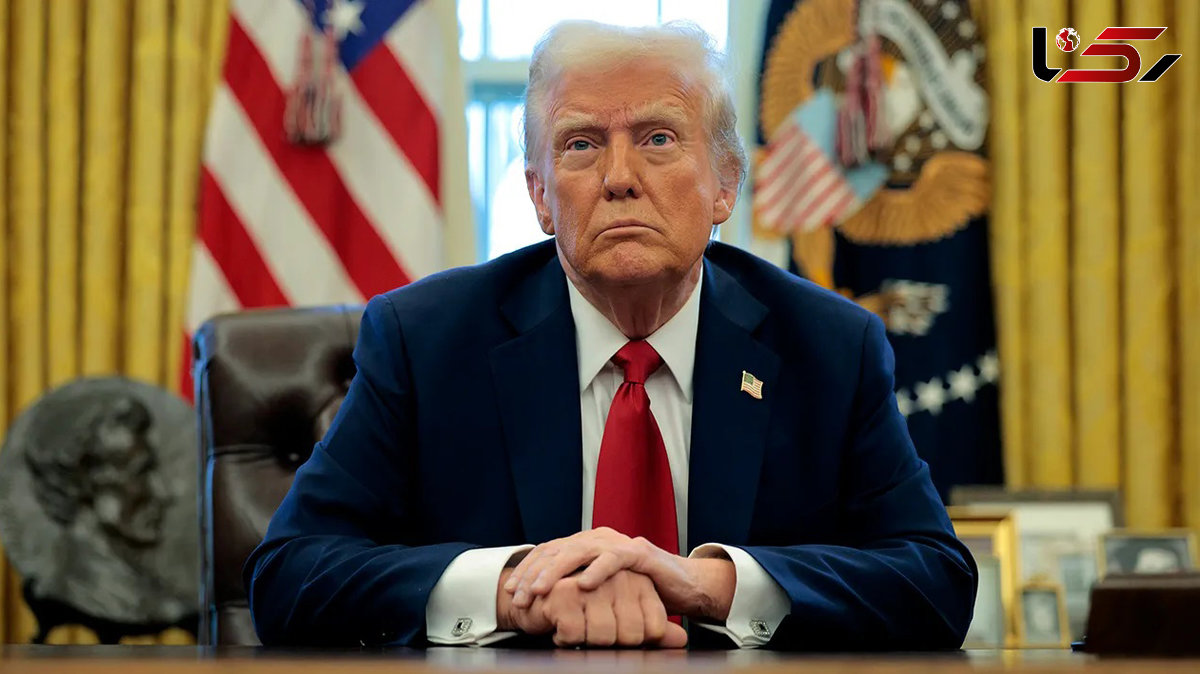Ten Foreign Policy Missteps of the Trump Administration
Rokna Political Desk: Foreign policy under former President Donald Trump has been riddled with missteps and errors. Foreign Policy magazine reviews ten major mistakes: reckless trade wars, territorial ambitions, weakening alliances, unconditional support for Israel, concessions to Vladimir Putin, rollback of clean energy initiatives, futile military displays, undermining the Federal Reserve, institutionalizing incompetence, and attacks on science and academia. These actions have eroded America’s soft power, diminished global respect, and paved the way for a gradual decline in U.S. influence.

According to Rokna, citing Foreign Policy, Stephen Walt, Professor of International Relations at Harvard University and a proponent of defensive realism, stated: “Let’s be honest: resisting the urge to watch a video of a plane crash or a collapsing building is not easy. The same bitter and horrifying pull can be felt when following the Trump administration’s foreign policy. We are front-row spectators to one of the greatest voluntary downfalls of a major power in contemporary history—a gradual yet shocking collapse of America’s geopolitical standing and influence. The scenes are simultaneously terrifying and mesmerizing, and yet hardly anyone can look away, even though barely eight months have passed since it began.”
1 – Catastrophic Trade Wars
Trump’s trade policies were not calculated strategy but a series of contradictory, hasty, and baseless attacks on the global trading system, harming both the U.S. economy and many of its international partners. Tariffs slowed domestic and global economic growth, increased inflation, pressured U.S. manufacturers, and angered former close allies. The administration’s use of trade as a punitive tool painted the U.S. as bullying and vindictive.
2 – Territorial Ambitions: Greenland, Canada, and Beyond
Trump’s public suggestion to acquire Canadian territory or Greenland lacked strategic or economic rationale and strained relations with long-standing allies. A recent Danish survey indicated 41% of citizens now view the U.S. as a threat. Such disregard for international norms risks encouraging similarly dangerous actions from other actors.
3 – Alienating Allies
By quarreling personally with key allies, including India’s Prime Minister Narendra Modi, Trump undermined decades of U.S. diplomatic efforts. His approach weakened America’s historical advantage of influencing Eurasian powers and disrupted efforts to balance China’s rise.
4 – Unconditional Support for Israel
Trump’s unwavering support for Israel, in both Gaza and the West Bank, brought neither increased security for Americans nor global respect. Opportunities to leverage U.S. influence for a two-state solution or restraint were missed, leaving destructive Israeli policies unchallenged.
5 – Appeasing Putin
Trump’s belief that he could end the Ukraine conflict by pressuring Ukrainian leaders and appeasing Putin reflected naïveté and a focus on personal display rather than sustainable peace. His poorly planned meetings, including in Alaska, revealed a lack of serious negotiation skills.
6 – Rollback of Green Energy Initiatives
Reducing U.S. investment in renewable energy and pressuring other nations to follow suit undermined climate progress and ceded leadership in green technologies to China, threatening long-term economic and strategic interests.
7 – Futile Military Displays
Trump favored short-term military actions against weaker adversaries, from Iran to drug traffickers, which yielded no real strategic outcomes. Simultaneously, efforts to repurpose the military for domestic suppression threatened civil liberties and U.S. defensive capabilities.
8 – Undermining the Federal Reserve
Attempts to dismiss Federal Reserve Chair Jerome Powell and Board member Lisa Cook threatened U.S. monetary independence, crucial for global confidence in the dollar and debt acceptance. History demonstrates that politicizing central banks often leads to crisis, as seen in Turkey and Argentina.
9 – Institutionalizing Incompetence
Trump deliberately appointed officials lacking relevant expertise, prioritizing loyalty over professional competence. This undermined U.S. foreign policy effectiveness in crises like Ukraine and Gaza. Symbolic acts or nominal changes could not compensate for strategic inexperience.
10 – Attacking Science and Academia
U.S. scientific and academic institutions underpin economic, technological, and military superiority. Trump’s cuts to research funding, attacks on universities, and discouragement of international students jeopardized long-term competitiveness and global influence, undermining the very foundation of U.S. soft power.
Taken together, these ten policies have accelerated the erosion of what Joseph Nye terms “soft power”—the ability to attract, influence, and inspire others voluntarily. While China expands its hard power, it also actively cultivates soft power, claiming to offer a fairer and more sustainable order. Meanwhile, Trump’s second term saw punitive tariffs, illegal attacks on foreign states, complicity in civilian casualties, sanctions targeting international prosecutors, domestic militarization, and law violations—all reinforcing a model that could inspire authoritarian leaders worldwide.
As Trump’s policies demonstrate, while some governments learn and adapt, his administration doubled down on ideological rigidity, leaving errors in foreign policy not as isolated incidents but as the beginning of a far-reaching pattern.
Send Comments